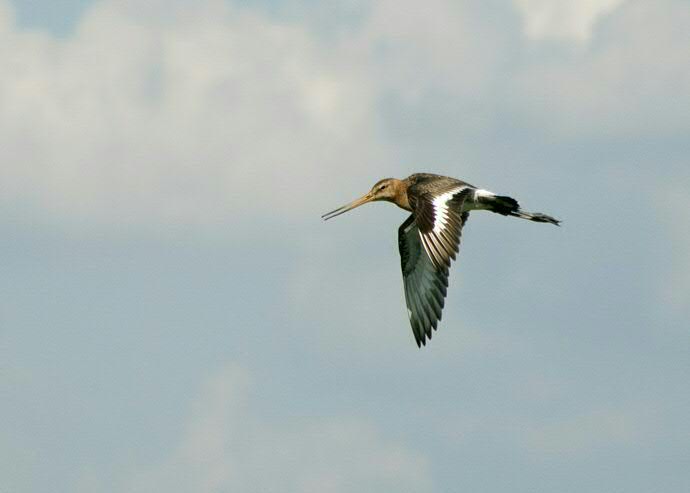Een beetje genetica, omgeving en daartussen vijftig tinten grijs

In de biologie heeft het lang gedraaid om één centrale vraag: komt een bepaalde eigenschap van een dier uit de genen of is het de invloed van de omgeving? Inmiddels is het duidelijk dat het niet óf is, maar én en hoé. In het jongste nummer van het tijdschrift Proceedings B, van de Britse Royal Society beschrijven de Groningse Nathan Senner en collega’s van de Rijksuniversiteit Groningen hoe je de invloed van de omgeving iets beter kunt begrijpen. ‘Veel draait om de timing’, zegt Senner. ‘Hoe later in het leven de omgeving van invloed is, hoe flexibeler een dier met een bepaalde omgevingsinvloed kan omgaan.’ De titel van de publicatie is An ontogenetic perspective on individual differences.
Senner illustreert zijn verhaal aan de hand van het trekgedrag van vogels. ‘Een vogel als de grutto is genetisch geprogrammeerd om in het voorjaar naar Nederland te trekken. Maar wannéér hij precies trekt, dat hangt af van de kwaliteit van zijn overwinteringsgebied. Als dat slecht is, heeft hij langer nodig om bij te tanken, en trekt hij dus later weg. Maar die eigenschap, ‘laat wegtrekken’, is daarmee niet meteen vastgebakken. Als de condities in een volgend jaar beter zijn, kan hij weer vroeger gaan trekken.’
Carry-over effect
Toch bestaat er ook een soort ‘doorwerking’ van milieu-invloed op volgende jaren, zegt Senner. ‘Een vogel die in een slecht seizoen wordt geboren, begint al met een achterstand. Die komt daardoor mogelijk later aan in zijn overwinteringsgebied, staat daar vervolgens ook achteraan in de rij en arriveert het volgende broedseizoen weer pas in Nederland als de beste plaatsen mogelijk al bezet zijn. Op die manier kan er een zogenoemd carry-over effect ontstaan, waarbij een omgevingsinvloed lang kan doorwerken in het leven van een dier.’ Senner en collega’s beschrijven in dit nieuwe artikel dat omgevingsinvloeden waarschijnlijk beter ‘omkeerbaar’ zijn naarmate ze later in het leven van een dier optreden.
Bescherming
Behalve dat het artikel biologen een nieuw houvast biedt voor het denken over het begrippenpaar nature en nurture (genetica en omgeving), is het volgens Senner vooral ook een waarschuwing aan overheid en natuurbeheerders. ‘Je kunt geen conclusies trekken over de kwetsbare gebieden of perioden in het leven van een bedreigde vogel als de grutto, door slechts naar één seizoen te kijken. De vogels zijn flexibeler dan we tot nu toe dachten. Je moet lang onderzoek doen - en vooral ook aan individuele vogels - voor je zinvolle conclusies kunt trekken. Tussen nature en nurture zitten nog minstens vijftig tinten grijs.’
Meer informatie
-
An ontogenetic perspective on individual differences
, is op 2 september 2015 gepubliceerd in Proceedings B van The Royal Society,
Nathan R. Senner1, Jesse R. Conklin1and Theunis Piersma1,2
1 Conservation Ecology Group, Groningen Institute for Evolutionary Life Sciences (GELIFES), University of Groningen, Groningen
2 Department of Marine Ecology, NIOZ Royal Netherlands Institute for Sea Research, Texel
Meer nieuws
-
17 februari 2026
De lange zoektocht naar nieuwe fysica
-
10 februari 2026
Waarom slechts een klein aantal planeten geschikt is voor leven
